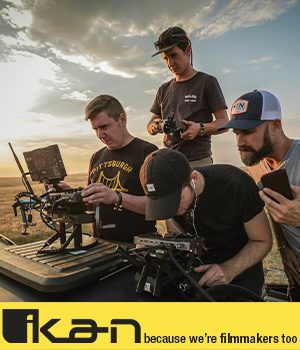- Forum
- Photography and Camera Forum
- Taking the Photo | Editing | The art of Photography!
- Editing and Presentation
- Do you edit most of your photos?
Do you edit most of your photos?
-
 Topic Author
Topic Author
- Flash Steven
- The Lounger
- Canon 7D and Canon 40D
- Followers: 195
- Posts: 1079
-
Points:
4862
Post #91427
Canon 7D w/grip, Canon 40D, Canon 70-200mm f2.8 IS L Canon MPE 65mm f2.8 macro; Sigma 70-300mm f2.8; Sigma 150mm f2.8 macro; Sigma 8-16mm f4.5-5.6
-

- Nikonjan
- Master of the Lens
-
- Nikon D300
- Followers: 142
- Posts: 1566
-
Points:
0
Post #91437
www.betterphoto.com?nikonjan
-

- Rob pix4u2
- Photo Guru
- Nikon N90s & FE film & D90 and D90 digital bodies
- Followers: 196
- Posts: 4204
-
Points:
30
Post #91447
Remember to engage brain before putting mouth in gear
Rob Huelsman Sr.
My Facebook www.facebook.com/ImaginACTIONPhotography
-

- KCook
- Photo Elder
-
- Canon EOS 50D and Olympus E-P5
- Followers: 1325
- Posts: 5410
-
Points:
32913
Post #91451
Kelly Cook
-

- Graflex 4x5
- Lone Wolf
-
- Nikon D300
- Followers: 4
- Posts: 178
-
Points:
0
Post #91477
I took a semester of Photoshop and Illustrator at the local community college. I'm surprized your tax person hasn't told you if it's for the betterment of your job .... Tax Deductable.
No matter how fast I go, there's always someone slower in front of me.
-
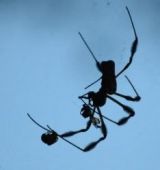
- Dori
- Moderator
-
- Nikon D5000
- Followers: 167
- Posts: 7371
-
Points:
12
-
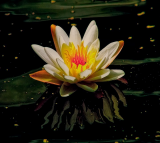
- robbie
- Apprentice
-
- D200,665nm D200,720NM D70,D7000
- Followers: 72
- Posts: 2768
-
Points:
25
Post #91573
to process.From my raw converter it`s pretty close to Viveza2,and Exposure filter in CS5.
My color Ir images is a totally different scenario with a lot of editing,if I cannot get the colors I want I closed it and come back another day.
-
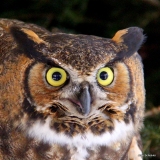
- Baydream
- Moderator
-
- Canoni/60D/70D/5DmkIII
- Followers: 388
- Posts: 11185
-
Points:
7278
Post #91593
Shoot, learn and share. It will make you a better photographer.
fineartamerica.com/profiles/john-g-schickler.html?tab=artwork
-

- Stealthy Ninja
- Moderator
-
- Fuji X stuff and a 1DsIII for some reason
- Followers: 982
- Posts: 16300
-
Points:
6837
-
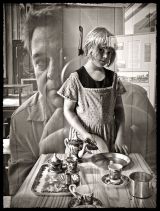
- Henry Peach
- Apprentice
-
- I currently use a 5DII or Sony Nex-3 most of the time.
- Followers: 50
- Posts: 2925
-
Points:
16
Post #92965
Each photographer should choose the methods they find effective and a pleasure to use. If sitting at a computer or working in the darkroom is not their cup of tea then they have other options. There are many ways of valuing a photograph, and no doubt some folks think it's very important to consider how hard it was to create. Previsualization requires much more effort to learn than adjusting photos to taste with our eyes. In the end I'm mostly concerned with the finished piece. I don't care if the photo was created using an 8x10 camera if it's boring. I don't care if they shot it with their I-phone if I find it intriguing.
I learned most of my image processing fundamentals looking at photographs, paintings, and drawings, and trying to achieve them in the darkroom (college, home, and work). Switching to digital it was just a matter of learning how to use the new processing tools. The basic ideas are the same. I don't think you have to go into the darkroom. Experience in Photoshop or whatever is just fine. Spend lots o time looking at photos and paintings in art museums and galleries. When you find one you really like try to assess why you like it. Try to achieve those visual aspects with your photos. I usually try to keep it simple: local and global adjustments that would be used in the traditional darkroom. But if I see something new that seems neat I'll try it out for a while. Often the excitement wears off eventually.
Edward Steichen wrote: It is rather amusing, this tendency of the wise to regard a print which has been locally manipulated as irrational photography – this tendency which finds an esthetic tone of expression in the word faked. A MANIPULATED print may be not a photograph. The personal intervention between the action of the light and the print itself may be a blemish on the purity of photography. But, whether this intervention consists merely of marking, shading and tinting in a direct print, or of stippling, painting and scratching on the negative, or of using glycerine, brush and mop on a print, faking has set in, and the results must always depend upon the photographer, upon his personality, his technical ability and his feeling. BUT long before this stage of conscious manipulation has been begun, faking has already set in. In the very beginning, when the operator controls and regulates his time of exposure, when in dark-room the developer is mixed for detail, breadth, flatness or contrast, faking has been resorted to. In fact, every photograph is a fake from start to finish, a purely impersonal, unmanipulated photograph being practically impossible. When all is said, it still remains entirely a matter of degree and ability.
The above quote was said over 100 years ago, so the debate about image manipulation is pretty old, although the common perception seems to be that it's a recent development (no pun intended).
-

- Johnnie
- Photography Hooked
-
- Canon 7D, Canon 20D, Fujifilm Finepix S1000fd
- Followers: 146
- Posts: 887
-
Points:
2
-
 Topic Author
Topic Author
- Flash Steven
- The Lounger
- Canon 7D and Canon 40D
- Followers: 195
- Posts: 1079
-
Points:
4862
Post #93097
Dori wrote: I use Gimp to clone things out, adjust color, saturation. That's about it .
How do you like that program? I know it's free, now does it compare to Photoshop well?
Canon 7D w/grip, Canon 40D, Canon 70-200mm f2.8 IS L Canon MPE 65mm f2.8 macro; Sigma 70-300mm f2.8; Sigma 150mm f2.8 macro; Sigma 8-16mm f4.5-5.6
-
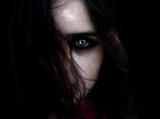
- crystal
- Photo Guru
- Nikon D7000
- Followers: 101
- Posts: 3253
-
Points:
75
Post #93197
www.crystalwightman.com/macro/eac3a3b7
-

- photobod
- Paparazzi
-
- Nikon D800 + D300
- Followers: 563
- Posts: 8907
-
Points:
150
Post #93199
www.dcimages.org.uk
"A good photograph is one that communicate a fact, touches the heart, leaves the viewer a changed person for having seen it. It is, in a word, effective." - Irving Penn
- Forum
- Photography and Camera Forum
- Taking the Photo | Editing | The art of Photography!
- Editing and Presentation
- Do you edit most of your photos?
Latest Reviews
The Canon EOS R100 is an entry-level mirrorless camera introduced in 2023. But just because it’s an entry-level camera doesn’t mean it’s a bare-bones camera. Find out why in this review!
Nikon’s retro-looking Nikon Zfc is anything but retro. Under its classic body is a host of features and amenities that make it a worthwhile compact mirrorless camera for 2024.
The Canon EOS R50 is one of the newest R-system cameras from Canon. Is it worth your money? Find out all the details you need to know in this comprehensive review.
The Sony FE 70-200mm f/2.8 GM OSS II is Sony’s flagship mirrorless zoom lens. As such, it’s loaded with features and has a top-shelf build quality that makes it a top pick!
Forum Top Posters
-
1alexcray 1 post
-
2Fitch 1 post
-
3Sean Lamber 1 post
-
4Ira Weber 1 post
-
5Cory J 1 post
Latest Articles
Using leading lines in photography helps improve the composition by drawing viewers in and leading their eye from the foreground to the background. Explore some fine examples of this in this guide!
The Insta360 has one of the best lineups of action cams and 360-degree cameras. With these Insta360 accessories, you can elevate your photography and videography game!
Creating impactful photos of landscapes depends on many factors, not the least of which is your talent behind the lens. This guide explores other elements required for the best product.
The Canon EOS R100 is an entry-level mirrorless camera introduced in 2023. But just because it’s an entry-level camera doesn’t mean it’s a bare-bones camera. Find out why in this review!
Are you ready to upgrade your camera? Before buying new, you might consider the value of purchasing used gear to save money.
The Olympus OM-D E-M10 Mark IV is a micro four thirds camera released in 2020. It’s an entry-level system along with the OM-D E-M5 Mark III. Use this guide to determine which one is best for you!
Blue hour photography might not be as well known as golden hour photography, but it is every bit as good a time to create epic images of landscapes. Learn how in this quick tutorial!
Nikon’s retro-looking Nikon Zfc is anything but retro. Under its classic body is a host of features and amenities that make it a worthwhile compact mirrorless camera for 2024.













